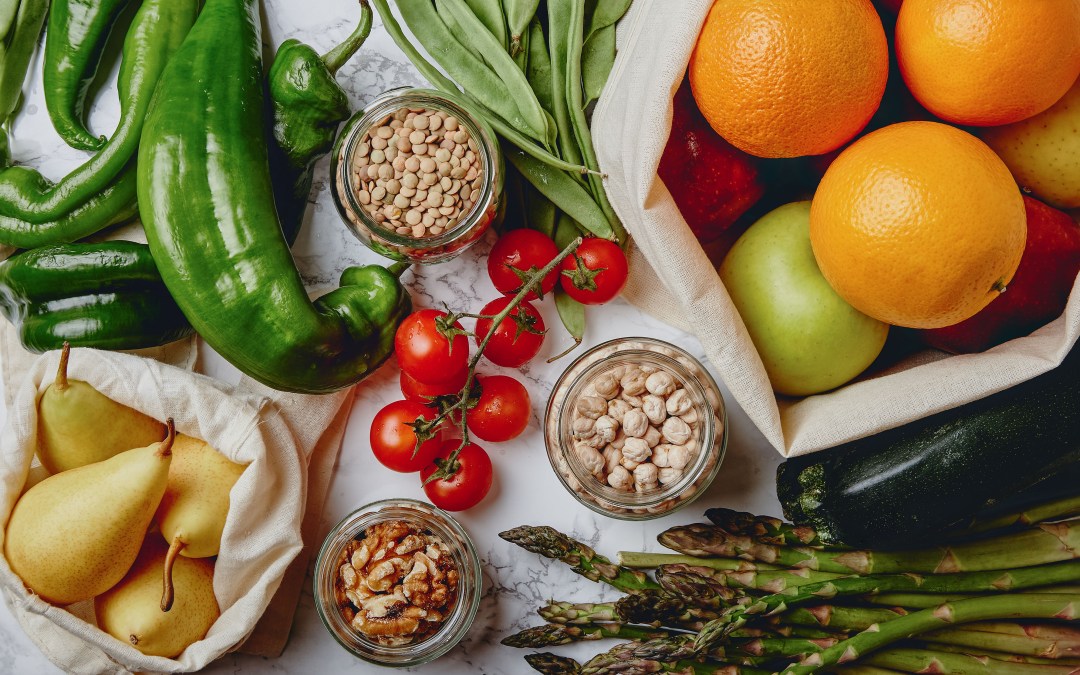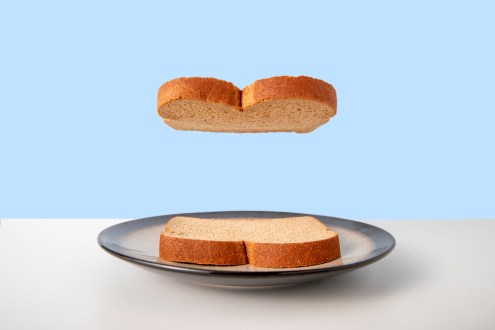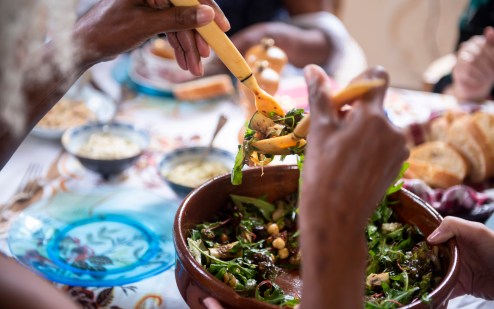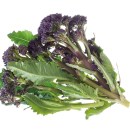Eco worrier: non-wasteful food approaches
From ‘compleating’ to food sharing and meal rescuing, 'Eco Worrier' Ellen Tout tries a waste not, want not attitude and finds a little goes a long way when trying to cut the food the throw away

5 minute read
Every year in the UK, we throw out 10.2 million tonnes of food – 7.1 million of which comes from our homes. Shockingly, 70 per cent of that ‘waste’ could have been eaten. When food reaches landfill, it can’t compost naturally and takes many years to degrade, releasing methane in the process. This is responsible for eight per cent of global greenhouse gases.
It feels like mass production and convenience foods mean we’ve lost connection with where our food comes from, and don’t value it. Every day in the UK, 20 million slices of bread are thrown away. In the past, stale bread might have been repurposed as bread pudding or croutons, and leftover meat and veg would be turned into soup or stew.
I didn’t think of myself as someone who wasted much food, but these stats and the concept of ‘compleating’ – eating all edible parts of the ingredient – sparked me to rethink this. Fruit and vegetables are the most commonly discarded foods, but many can be ‘compleated’. One of my favourite dishes uses butternut squash, but I’d usually chuck away the seeds and skin. Not today! I discover that both can be tossed in a little oil with spices and roasted to create delicious crisps and toasted seeds. This can be done with most vegetables: pumpkins, carrots, potatoes, sweet potatoes and parsnips. Herb stalks, carrot and cauliflower leaves, cabbage hearts and leek tops are all edible and nutritious. I love how this way of thinking encourages me to try different recipes and change my habits.
I’ve also found some brilliant free apps that help to tackle the wider problem. Too Good To Go allows you to rescue leftover meals from restaurants and cafes for a fraction of the cost. And OLIO connects neighbours and local shops, so surplus food can be shared. Both are more active in cities but, even living in Kent, in one day, I pick up some unwanted cacao, tea and pineapple, and a bag packed with salad, hummus and bread for just over £2.
For anything we really can’t consume, composting is a good option. But, before opening the bin, I’ve enjoyed reframing the way I use my ingredients, being more creative and seeking out a community of like-minded ‘waste warriors’.
Green finds
Food savours, let the compleating begin!
- Cooking With Scraps by Lindsay-Jean Hard (Workman, £8.94) – these recipes turn peels, cores, rinds and stems into delicious, healthy meals.
- Percol wins on all accounts: plastic-free packaging, fully home-compostable, carbon-neutral, Fairtrade and organic.
- Toast Ale is brewed with fresh surplus bread, and profits go to a charity fighting food waste. Try their award-winning vegan beer, £2.50 a bottle.
More inspiration: For recipes and compleating ideas, see lovefoodhatewaste.com or The Zero-Waste Chef
Read more from Ellen on her eco journey in the magazine each month and follow @Ellen_Tout
Image: Getty








